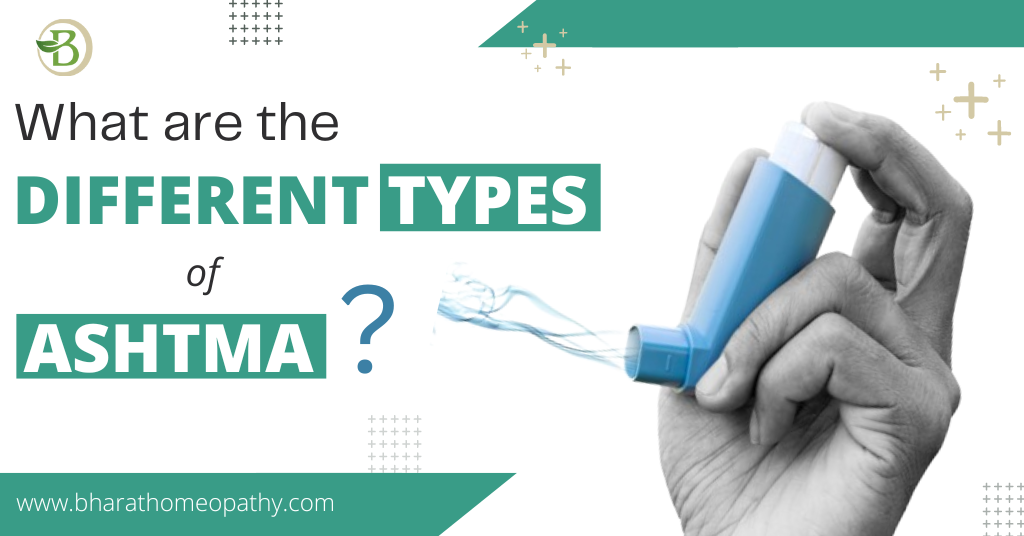From Mild to Severe: Different Types of Asthma
Are you concerned about how asthma could affect your health? You’re not alone. Asthma is a prevalent respiratory condition that impacts millions of people worldwide. Understanding and avoiding triggers and specific factors that can worsen your symptoms is crucial to identifying your type and receiving the most appropriate asthma treatment. This article explores essential aspects of asthma, including its symptoms, causes, types, diagnosis, and treatment options.
What is Asthma?
Asthma is a long-term lung disorder marked by inflammation and narrowing of the airways. This chronic condition disrupts the smooth flow of air in and out of the lungs, leading to breathing difficulties.
Common symptoms of asthma include
- Wheezing
- Coughing
- Shortness of breath
- Tightness in the chest
- Increased mucus production
The following facets act as triggers for asthma:
- Allergens like pollen or dust mites
- Physical exertion
- Exposure to cold air
- Respiratory infections
- Smoking
- Strong chemicals and smells
- Genetics
Individuals with this chronic ailment can easily manage their condition through proper medication, trigger avoidance, and a healthy lifestyle. This comprehensive approach can enormously reduce the impact of this respiratory condition on their daily lives, offering significant relief and comfort.
What are the Types?
There are various types of asthma, each with its characteristics and triggers. Understanding your specific type is not only informative but also empowers you to take control of your health. This knowledge is crucial to ensuring you receive the most appropriate care and management strategies.
The following are a few common kinds of asthma:-
Allergic: Allergies are responsible for between 50% and 80% of asthma cases. Allergens are substances that trigger allergic reactions. They can enter the body via inhalation, ingestion, contact, or injection. Allergic asthma causes airway inflammation and constriction when exposed to allergens such as pollen grains, animal dander, mould spores, foods (e.g., milk, eggs, nuts), dust mites, cockroaches, irritants in the air (e.g., tobacco smoke, automobile and chemical fumes), and heavily fragranced products (e.g., perfume). Allergic asthma symptoms include nasal congestion, sneezing, sore throat and watery eyes.
Non-allergic: Nonallergic or intrinsic asthma doesn’t rely on allergens to trigger an asthma attack. While less common among children, it constitutes nearly half of all adult cases. Those who develop it after age 40 are more prone to this nonallergic type. This respiratory issue stems from genetic and environmental influences, including exposure to cold, humidity, stress, physical activity, pollution, smoking, and respiratory illnesses such as colds, flu, or sinus infections.
Occupational(OA): Workplace triggers cause occupational asthma. With this form of asthma, you may experience difficulty breathing and symptoms just when at work. Rather than the normal wheeze, many persons with this kind experience a runny nose and congestion, eye discomfort, or cough. OA may affect any job or work setting, including offices, retail, hospitals, and medical institutions. Animal breeders, farmers, hairdressers, nurses, painters, and woodworkers are among the fields most commonly associated with OA.
Nocturnal: Nighttime or nocturnal asthma can cause symptoms to appear many times a week or even every night, which may cause disrupted sleep. This kind of asthma has symptoms similar to others but worsens in the evenings. Symptoms include coughing, wheezing, and trouble breathing. This is assumed to be due to increased exposure to allergens, cooling of the airways, reclining position, or even hormone releases with a circadian rhythm.
Exercise-induced: EIB (exercise-induced bronchoconstriction) causes your bronchial tubes (airways) to constrict when you exercise. Bronchoconstriction is a crucial feature of asthma, where the muscles around the airways shrink, making breathing challenging. Fast breathing during exercise is believed to dry and tighten the bronchial tubes. Symptoms of EIB might appear shortly after you begin exercising. Pollution, pollen, cigarette smoke, other airborne irritants, a common cold or a recent asthma attack, can all increase your chance of developing EIB. Exercise in cold, dry air is more likely to result in EIB than in warm, humid air.
Cough-variant: Intense coughing is the main indication of cough-variant asthma. This type typically involves a persistent cough triggered by allergens, cold air, or irritants rather than wheezing or difficulty breathing. Those affected may also be at risk of complications such as lung failure, pneumonia, rib fractures from severe coughing, persistent narrowing of the bronchial tubes, and lung collapse.
Pediatric: Respiratory issues can emerge at any stage of life, often beginning during childhood when the immune system is developing. Typically, symptoms manifest by the age of five. These respiratory challenges can lead to school absenteeism and hospitalisation. They may also disrupt daily activities such as play, sports, academics, and sleep. Recognising the effects of these respiratory issues on everyday life can motivate parents to take proactive measures in managing their children’s health.
Adult Asthma: Identifying asthma occurring in adulthood typically happens after age 20. The origins of respiratory issues in adults differ from childhood ones, often persisting rather than resolving over time. While underlying lung inflammation is common among adults with respiratory challenges, the triggers for their symptoms vary. Although adult-onset respiratory issues tend to be enduring, appropriate treatment can enable individuals to lead active and fulfilling lives.
Seasonal: This condition is triggered solely by environmental allergens during particular times of the year. For instance, cold winter air or pollen in spring or summer can worsen symptoms related to the seasons. Throughout the year, individuals affected by seasonal triggers still carry the condition, though they may not always show signs.
Educating oneself about asthma is not just a suggestion. It’s a necessity for controlling one’s symptoms. Because even moderate respiratory issues might worsen over time, one should adhere to a doctor’s treatment plan and have regular follow-ups. This knowledge equips you with the tools to manage your condition effectively, making you feel informed and prepared.
Treatment Options:
Today, we have a variety of treatment alternatives for various problems. However, we are unaware of the influence of these medicines on our lives. Asthma is a chronic disease that requires proper diagnosis. As more individuals seek alternatives to traditional medical treatment, Homeopathy has emerged as a viable option. If you want a safe and efficient approach to treating your flare-ups without side effects or consequences, homeopathic treatment for asthma might be the answer.
Homeopathy, emphasising personalised treatment and gentle pharmaceuticals drawn from natural sources, provides a comprehensive approach to asthma symptom management. This alternative treatment addresses asthma attack symptoms and the underlying reasons, encouraging long-term alleviation and overall wellness. Unlike conventional medicine, homeopathy does not use harsh chemicals or pills that may have adverse side effects. Instead, homeopathic medicine for asthma is diluted to a safe and toxic-free level, making it appropriate for people of all ages.
Furthermore, asthma homeopathic treatment considers an individual’s specific symptoms, medical history, and overall well-being to create a personalised treatment plan that satisfies their needs.
Homeopathy for asthma embraces the concepts of safe and natural healing and is a practical and effective option for people looking for an alternative approach to asthma management.
Bharat Homeopathy
Searching for the best way to treat your disease? Look no further than Bharat Homeopathy! Bharat Homeopathy is the top choice for asthma because of its exceptional reputation and staff of highly qualified doctors. Our clinic takes a comprehensive approach to therapy, addressing the underlying causes of asthma rather than simply the symptoms.
At Bharat Homeopathy, we recognise the value of personalised treatment. Our skilled doctors thoroughly examine your case, create a treatment plan suited to your respective needs, and provide the finest asthma medication. With an in-depth understanding of homeopathic principles, we attempt to provide a safe and effective asthma homeo treatment that encourages natural recovery.
Trust in our knowledge, and let us help you live a healthy, trouble-free life. Choose Bharat Homeopathy for your treatment and see the difference now!


